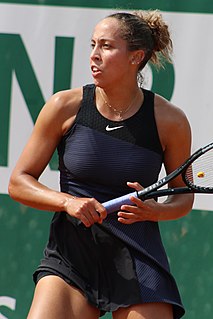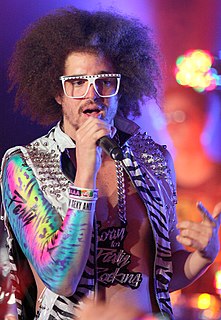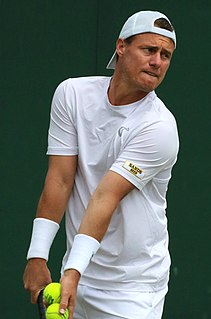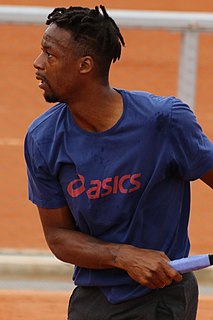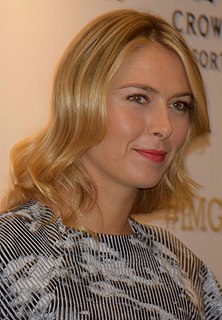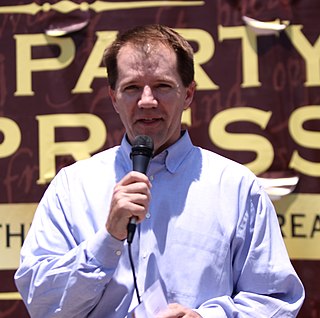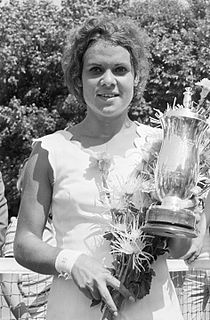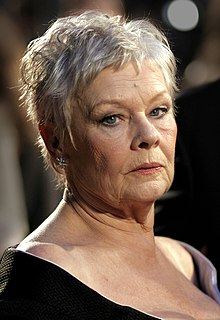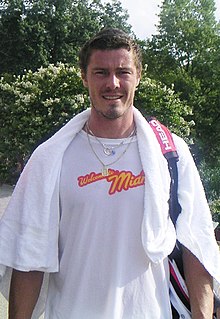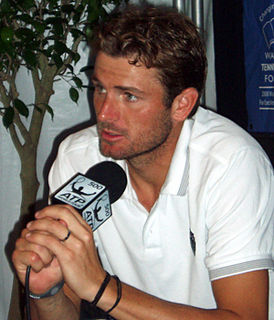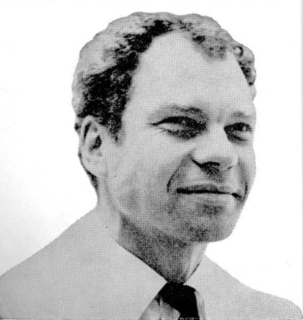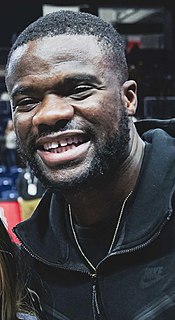A Quote by Madison Keys
The second I was on the tennis court, I had the structure I wanted. I was in complete control of what I was doing.
Related Quotes
I believe that one version of the good in life can be defined by the moments I sometimes had playing tennis as a sixteen-year-old. You'd be out on the court and for an hour, two hours, sometimes an entire roasting hot day, and every single thing you hit would go in. Hit that ball as hard as you wanted, wherever you wanted, and it went in.
I disagreed with the way the court applied the Second Amendment in Heller's case, because what the District of Columbia was trying to do was to protect toddlers from guns and so they wanted people with guns to safely store them. And the court didn't accept that reasonable regulation, but they've accepted many others. So I see no conflict between saving people's lives and defending the Second Amendment.
People in tennis, they've been in a certain bubble for so long they don't even know who they are, because obviously it's just been tennis, tennis, tennis. And let it be just tennis, tennis, tennis. Be locked into that. But when tennis is done, then what? It's kinda like: Let's enjoy being great at the sport.
